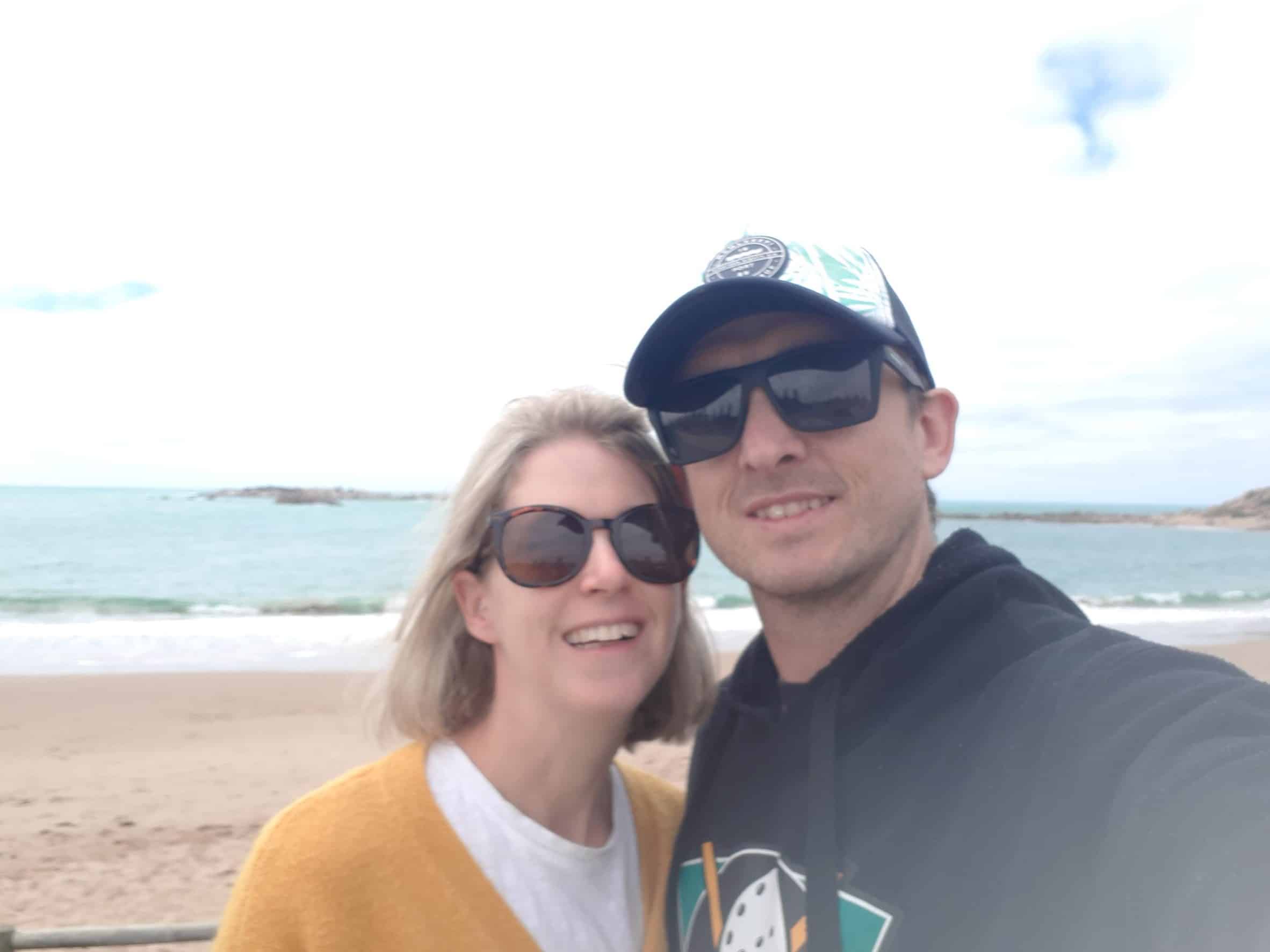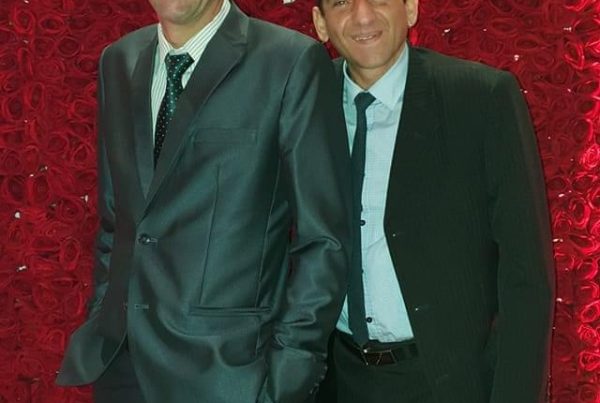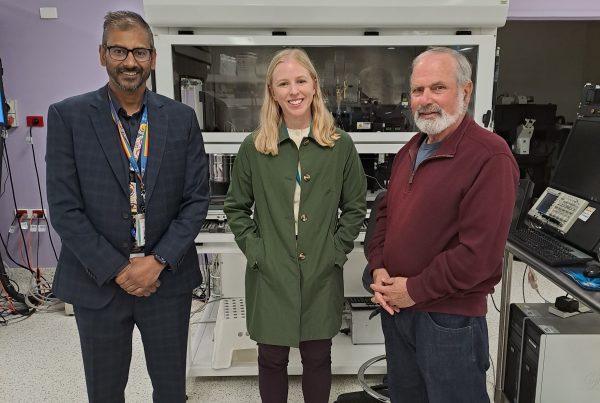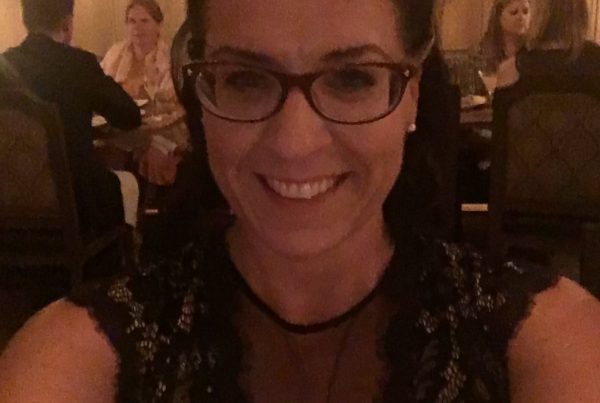Podcast: Play in new window | Download
Subscribe: Apple Podcasts | RSS
CFPhysio and navigating fatherhood part 2
This episode of the CFStrong podcast is thanks to our collaboration with CFPhysio

This is the second episode to navigating fatherhood with CF. Sam, a young man with a dedication to his daily routine, and his health shares with us some of his journey with CF. Sam, who has a very full plate of life, on top of juggling a chronic health condition walks us through some of the challenges, the ups and downs, and the decisions when starting a family. Sam is honest in sharing his experiences learning how to prioritise the things that bring him joy whilst upholding the tasks that keep his health.
Transcript
Jen: Hello, and welcome to the cfphysio.com and CF Strong Collaboration podcast series. My name is Jen Hauser. I’m a physiotherapist with almost 20 years experience in cystic fibrosis care and the project lead for cfphysio.com Together with CF Strong, we have joined forces to bring to the CF community real-life insights and personal experiences on all things physiotherapy and CF.
cfphysio.com is a not-for-profit organization, striving to deliver evidence-based education in CF physiotherapy, management to healthcare workers and individuals impacted by CF. CF Strong is a website designed to inform, educate, and empower adults impacted by CF through the sharing of individual’s personal journeys of living with CF. We hope you find some value from listening to the podcast we bring to you in this series.
Please remember, the content is not intended to replace your usual healthcare. Please discuss any concerns or questions you may have with your healthcare team.
It’s a privilege again to have Sam and Robyn back in the studio to record our second chapter of Sam’s journey, navigating fatherhood a chronic health condition. Sam has cystic fibrosis is a physiotherapist by trade, a keen exerciser, and we’re really grateful Sam to have you with us again, hopefully, those listening have heard the first part of this podcast and learn a little bit more about you and your childhood and upbringing with cystic fibrosis.
Thank you for continuing to share with us this journey of navigating fatherhood with a chronic health condition. Roybn, as your physiotherapist, thank you again for joining us, and we really look forward to this conversation. I will catch up with you guys at the end of the session. Thanks again.
Robyn: Now we move into the very interesting part for you, which is the journey of looking at trying to become pregnant and what that actually looks like as a male with cystic fibrosis and what is involved in the steps of that. I’m sure we’re all very interested to hear because it’s an area that not many of us know much about. If you could just give us a little overview of that.
Sam: Just to give our listeners a bit of an idea. We tried for seven years to have Caleb of which, well, nearly all of that was going through IVF. That is a journey that could take volumes of books to cover. To give a quick little snapshot obviously blokes with CF are unable to have children naturally. They’re able to produce semen. They just can’t get it out because the vast deens little tube that gets it out the normal way gets blocked off. It’s not that they’re entirely sterile, it just, they need a bit of help.
We went to the IVF clinic. We actually went to three all up over our time. The general idea, it’s pretty simple. They come along and they extract the semen with a big needle and then they have to harvest eggs from the woman which is a horrendous process because it involves heaps of hormone injections to have them overproduce eggs that are then harvested.
Then in the lab, they take the semen and the egg and pop them together, and hopefully, the little baby embryo survives. If it does survive till day five, they will take that embryo and then the doctor will put it into the mum’s onto their uterus lining, and then hopefully the embryo sticks and then starts to grow and the mum gets pregnant. I mean, logistically, it’s a pretty simple idea in practice, however, it can be very quick and easy, or it can be exceptionally difficult.
For example, my brother, their first go with IVF, they had a beautiful little boy straight up but with us, I don’t know how many cycles it took. I’ve lost count, but it was over six years of cycles. The results are varied and obviously, some people never have success. It’s not a foregone conclusion when you start out. Then just writing the cycles, anybody who’s been a parent when they’re trying to conceive, would know the cycles of ups and downs that come with that, that you add in the knowledge that you have an embryo inside you or for the mother usually, people don’t know that they’re just trying, naturally to have a baby.
They don’t know they can relax, but you there’s an embryo inside your wife or inside her, and that just, it’s easy to say, don’t stress. It’s another thing to do it. Then you add on top of that all of the hormones and everything else. Then the repeated disappointments that come and come and come. It’s a dead-set emotional rollercoaster that can be a difficult ride. That’s not to say that people shouldn’t do IVF. It’s just, I think to give a bit of a realistic account of it was a tough journey to be fair.
Robyn: The ups and downs, the emotional rollercoaster, as you said, the high of expectation, and then the lows. In amongst all of that, how did you and Tamara keep going? Because that is a very, very long time. What do you think helped you through what was an incredibly emotional challenging time?
Sam: That’s a good question. Well, I think each other you know sadly a lot of relationships don’t survive IVF because of the emotional rollercoaster that that happens, at no point, although it put a significant strain on our relationship, at no point did we blame each other. I’m really grateful to Tamara for that because, I know it’s not my fault, but the issue is me. It would be easy to somehow in some deep prime way to be, to put place blame.
She never did that, ever. I’m really thankful for that. I think that’s probably something that helped. We have a wonderful family around us who are very loving and supportive. We also have a wider faith community that are just phenomenal. They’re a family as well, just not biologically and the way that they loved and supported us as well. We had people around us who were just amazing. They helped and at times, to be fair, that they carried us through some really dark moments.
I can remember probably the darkest moment of my life was when we miscarried a time and we’d got pregnant finally after so many years. There was the elation of that. Then suddenly out of nowhere it seemed we miscarried. That was a real moment of breaking for me. The people around us just loved us through it, through that. Like we didn’t tell everybody what was going on, but there were the core few who we knew who would support us and love us and speak life into us and encourage us and pray for us and belief for us when we didn’t have belief left, you know?
I think that that community not turning on it, making a decision not to turn on each other and then having that community around us, but maybe something else that helped is we had several breaks. There were times when we were just like, we need to stop for a while, and we don’t know when we’re going to go back, and we’re just going to give this a while. We, mum and dad helped us go to Hawaii in one of those breaks. That was just a wonderful time to relax and chill. I think community around us was very helpful.
Robyn: It takes a village, doesn’t it? A village of care and love and faith. Thank you for giving us the opportunity to hear what was a deeply personal experience, but the wonderful, as you put it to me, in your words, you said, Roybn, we’ve got a miracle the wonderful miracle was the birth of Caleb, and we were so grateful that you have had the opportunity to experience having a little baby.
Please tell us about how your world changed when your new little boy turned up. What it looks like managing your CF around having a newborn baby with a wife who’s just given birth as well. If you can just give us a little bit of insight we’d love to hear.
Sam: I think it’s probably a cliche, but it’s absolutely true. Your world turns upside down. I remember the first night that Caleb came home, it was the night from hell, gosh, it was bad. We both, Tamara woke up in the morning with the very, very little sleep that we’d had after a night of screaming. Caleb was screaming, not us. We looked at each other and Tamara looked at me and she just goes, “That was the night from hell.” I’m like, “It was, it better get better.”
Any parent who is a parent knows that those first few months are pretty hair-raising, but then somehow some way it just sort of gradually gets better and you get into some form of routine. Once you get routine back, gee, everything gets better.
Having a baby is a wonderful joy an amazing privilege, an amazing a fearsome responsibility too to bring another life and raise that life in this world. I think probably above everything else, having a baby takes time out of your life in the sense that you are dedicated to this new beautiful little creation that seems to scream louder than you think they could.
That has a direct impact upon my ability to look after my health, because as we said before, to do the daily treatments that keep me consistently, well that takes time and so now there’s this major other time factor coming in that’s of exceptionally high priority. I have to say, I’m figuring it out as I go. Like, I wouldn’t say that I’ve got it all together yet, Robyn, and actually, I was thinking about this podcast tonight and you guys like asking me about how to be a dad with CF, and I’m supposed to have a, like, have it together or whatever, and I could tell I’m shattered. Like, I’m so tired in this moment.
There’s been a lot going on in my life recently from all different aspects and forms, and I actually feel in this moment that I’m actually not managing well my time and balancing things well right now. However, I think that something that both Tamara and I decided before Caleb was born was that my health would continue to be the priority and that I would continue to do my treatments and that nothing would get in that way on a day-to-day basis, nothing out of the ordinary would get in the way.
Wonderfully Tamara has continued to allow me to do that, which places an extra burden on her to do that. I’ve been able to continue exercising and doing all of my treatments. I do, however, take a lot of time whatever spare time I had before, like, there is none now because all of my spare time is taken up in trying to give Tamara a break from looking after him all day and let her have an hour to herself when I get home from work or whatever.
I’m having to before Caleb was born, my life was really well organized and structured exceptionally well and that’s how I was able to stay well. Now that structure is having to change and I’m trying to figure it out as I go and I’m making, I’m not sort of getting it all the time. I think I’ve got at least enough of it right so far that I haven’t fallen in a heap. Although at times I felt like I was about to.
Attempting to keep some of that structure or at least get back to it when you can, and prioritizing those daily treatments is I think that’s what’s kept me well through these nine months.
Robyn: You hit the nail on-the-head when you said sometimes life gets in the way. I remember talking to you on the phone and you were in the middle of the upper New South Wales floods. You were part of the crew that were supporting and helping everyone. You said, Robyn, I’ve had three days. I haven’t been able to do what I usually do, and I can feel the wheels starting to fall off already. I’m going to have to regroup.
It is so challenging, isn’t it? To, we all have bumps in life and we all have times that we get hit with curve balls. You now have more curve balls than you’ve ever had before that you are having to manage to maintain your health, your work-life balance. That is how do you see yourself evolving and growing into it? You said you are working on it and you are making those changes. What, if anything, do you give yourself the luxury of letting go of when it goes crazy like that? What do from a physio perspective?
Sam: As in, do I let any of my treatments go?
Robyn: Yes.
Sam: Well, when the floods hit, so for those you probably remember, Northern New South Wales got entirely smashed in those floods. The first sort of two weeks there Tamara and I run a charity through our church ministering to the people in our community. We were heading up at least our church’s response to the floods to help the community and that involved a lot of mud arming and you guys probably saw or maybe have been part of the mud army. From an exercise perspective, I counted my mud armying as exercise.
Robyn: Absolutely.
Sam: I was like two birds, one stone. I think when those things come, like who nobody predicted, for example, the flood and everything else that was going to happen there. There’s lots of things in life that hit us that we don’t expect, I think for whatever else shifts around. For me, from a health perspective, there’s two things that I must do. Even if I was to miss a day that I would do it the vast majority of the days.
That is that I do my nebulized treatments, chest clearance at my exercise and that I get enough rest. That was exceptionally difficult during the floods, and it still is now because there’s lots of charity work that I’d like to be doing that I am actually actively choosing not to do or doing less than I would like. Because like, for example, this afternoon I ran into some homeless people and they asked us that they know us and they asked us for some food and some other things.
This afternoon, as I said before, I feel like I am at the end of my limit, at the moment, and so I actually said, “Look, hi, I want to get that to you and I will get that to you, but I’m sorry I’m not going to get it to you today. Just because I know that if I keep pushing myself, well then it’s going to fall in a heap. I think prioritizing whatever comes along, prioritizing those things, that the treatments and then the rest is what’s stopping me from falling apart.
To be fair, a lot of the times I do feel like the wheels are falling off, but that’s when Tamara kicks me out the butt and says, stop. It’s actually, there’s a funny story. She oh, I’m not allowed to say this, well, I said her now I’ve got to do it. She was worried the other week that I was doing too much and that I’d go out and do all of these things. She actually hid our keys so they wouldn’t get in the car and go and do things, which is an absolute credit to her because she knows when I’m falling apart does what’s necessary to make sure that I don’t do do too much.
I don’t know how well I answered your question, but that’s what I can figure at the moment.
Robyn: No, the way you’ve answered that question is you have given us the realization that it’s important we help you to know that you can always say no as well because you are putting your health first and learning to say no is one of the hardest things that we can do. That’s all of us but learning to say no, so that you prioritize your health first, Tamara is helping you with that. We are very grateful to her for doing that.
Sam: As am I.
Robyn: This work-life health balance that you are now navigating, you are teaching us along the way too. We thank you so much for everything that you have given us today and it has been amazing to actually have the insight. I’ve learned so much today too, Sam, because for once we are not actually talking about all things physio in amongst our chitchat about the other things going on in our life and actively listening to you has been such a privilege. Thank you very much.
Sam: Oh, Robyn and Jen and the whole CF Physio show team it’s a real honor to be on here and I don’t know a lot, but hopefully, something that I’ve shared today will resonate with some people and hopefully give them hope. Just actually, can I just say with the IVF stuff I did paint a pretty bleak picture of it, but we’d actually chosen to give up doing IVF and give up our rotate to have a child. It’s just that we had one egg left and we thought, oh, give it a crack.
It’s cliche to say, but it’s true that Caleb was the last shot that we had and praise God we’ve got Caleb now, so I just want to throw in some hope there for some people that might might be needing a bit.
Jen: Sam, I tell you, some people ask me why I do all the cfphysio.com work and as a volunteer, and it’s because it is a true, you say it’s an honor to be in this studio, but I feel very, very privileged to be able to be part of these podcasts. Robyn, your rapport with Sam and you guys have worked together obviously for a long time. It is truly a pretty remarkable experience.
Sam, your honesty in what you shared with us, and I’ve said this before to some of our guests, the vulnerability that you showed as well CF is a cruel, cruel condition really in its unpredictable nature. Then listening to you share that story of IVF and that emotional rollercoaster and seven years that is enduring for any individual, but also a relationship.
I don’t think you should apologize for sharing how bleak that was in moments because it was the truth of what you navigated and testament to your relationship with Tamara and both of you as human beings. I think Caleb is a very, very lucky young man to have a dad like you. Your discipline and diligence and persistence, as Robyn said, oh my gosh, you put me to shame.
I won’t tell you, you need to read it if you haven’t yet because you probably could write the book, but Atomic Habits, I’m not sure if you are familiar with it, but it’s about habit formation in life and it’s how we can create our habits is about how we want to be seen as a person. You have totally epitomized that in how you’ve navigated your journey with CF and how you’ve chosen to not let CF define you but say who you would like to be as a person and you want to be a person who is fit, is passionate about exercise and seeing the elixir that exercise can be to life.
That has obviously then helped with CF that it doesn’t feel like a chore to you, although I’m sure some days it does. I think also as I said before, like I think recognizing males with CF as those unsung heroes of what you guys actually do also go through and any individual, male or female navigating parenthood with CF, there is that whole other component in your day that you need to somehow factor.
There’s so many things that you want to give, but you constantly having to still prioritize your health and other things have to miss out as a result of that. You can tell you don’t look at that negatively. You continue to focus on that extremely positively and with a lot of hope and I just I think you’ve said it as it is real and you haven’t sugarcoated it. I thank you for that and I think a lot of people in the CF community will as well.
Sam: Thank you, Jen.
Jen: Thanks very much, Sam.
Sam: I do need to say going through the IVF journey and then being in the room while tomorrow went through labor, I’ve just got to say women are freaking superheroes. Oh my gosh, you guys are amazing.
Jen: I’m glad you recognize that, Sam, because before we got into the studio, I’m going to let everyone in on a secret here because you told on Tamara about hiding the keys. Sam, I asked if Sam was going to go there about the whole process of the semen extraction because I think that is an area that a lot of people in the general community don’t understand.
He did make the point that he wanted to try and get a few sympathy votes because you know that would get them because of the very big needle. I’m really pleased that you recognize that women go through a lot. Anyway, we’re digressing here.
Sam: No, it’s true. Far, far more. Absolutely.
Jen: I think clearly in your relationship though, Sam, there is very much mutual respect for each of the journeys that you are both having to navigate and how you do that together in a partnership. Robyn said it as well, and we’ve said it in previous podcasts, is it takes a village, it takes a village to raise a child but I think it takes a village to navigate CF.
Sam: Hhundred percent.
Jen: I think being able to have the capacity to recognize your limits and, and recognize when you need that help, that’s not an easy thing to do. It’s a very brave thing to do and certainly at times we need to just confess that we’re not okay. It’s helpful, I hope for some people to be able to hear that from this podcast.
Sam: Absolutely.
Jen: As I said before, there is a danger to the three of us and that’s why I stepped out for most of it could probably talk for the rest of the evening, but we mustn’t because time is precious. We have just learn that. Sam, you have a lot of good to give, but you probably, well hopefully you’ve done all your physio treatment now.
Sam: I did, I did them earlier. Correct?
Jen: One last thing I promise, and then I’ll go. I do love when Robyn ask what would you let go and you really struggled to answer that. You were just like, oh, actually I don’t know, I’d exercise and then I prioritized my inhalation therapy and I prioritize my air clearance. I was like, oh my gosh, let’s put you in a little jar of sprinkles and we’ll just sprinkle that all around to people without CF too so that we can all prioritize.
Robyn: I have to tell you, Jen, this will make you laugh because I’ve never forgotten it. I used to go, “Oh, Sam’s a physio. He knows exactly everything he needs to do. He’s got no problem. I don’t need to tell him a thing. I didn’t use to tell him a thing.” Then somehow we started talking about inhaled tobramycin and he goes, so when I do my inhaled tobramycin and my airway clearance combined, and I went, “What, what, what?” He goes, “What?”
I said, “Can you just say what you just said again?” He goes, “Yes, so when I do my inhaled tobramycin and my airway clearance combined,” and I said, “Who taught you that?” He goes and “aaaa,” I go, “You’re a physio, you should know better than this,” and you probably can’t even remember. Whereas I remember it as clear as day when you did that to me Sam and I-
Sam: I do remember it. Robyn. I was cringing. I was cringing before you said it.
Robyn: Luckily I didn’t bring it up in this forum.
Jen: No. Well, I think for those still listening to the podcast, if you haven’t tapped out yet, that’s a really good lesson for physios. Not the physios with CF, but for the physios, treating individuals with CF and particularly adult individuals, we can often assume that they already know because we’re pretty sure we might have told them or they might have learn along the way but we need to be very open-ended with our questions and find out exactly what you are doing so that we can help you optimize your therapy.
Anyway, I’m going to sign off here. Robyn and Sam, don’t sign off just yet. We’re wrapping up. Everyone thank you very much for listening in. The podcast will be available on cfphysio.com and also feel free to head over to CF Strong, who we continue to collaborate with to bring these podcasts to you. Thanks to the Circle of Care Vertex grant, and we hope you have enjoyed it. We will definitely have more to come.
Thanks again Robyn and Sam, really, really appreciate having you in the studio tonight.
Robyn: You’re welcome. Thank you.
Sam: Thank you. Thank you so much.
Jen: We hope you have enjoyed listening to this podcast. This podcast series has been made possible through the support of Cystic Fibrosis Tasmania and a Circle of Care grant with Vertex Pharmaceuticals. Thank you to CF Strong for their support and collaboration on the series. You can find this podcast and more on cfphysio.com, CF Strong your favorite podcast platform.
CFPhysio strives to deliver evidence-based education in CF physiotherapist management that is accessible to all. Their mission is to educate and empower healthcare workers (involved in the care of individuals with CF) and all those impacted by CF in physiotherapy. Visit CFPhysio to learn more.
This podcast was published in July 2022. If you would like to share your story, please contact us at admin@cfcc.org.au. We’d love to hear from you and so would our listeners.




